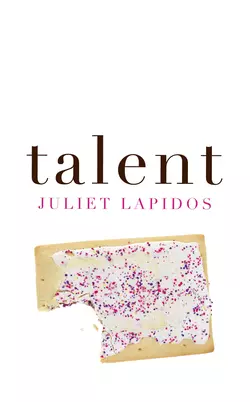Talent

Juliet Lapidos
Тип: электронная книга
Жанр: Современная зарубежная литература
Язык: на английском языке
Стоимость: 1241.52 ₽
Статус: В продаже
Издательство: HarperCollins
Дата публикации: 16.04.2024
Отзывы: Пока нет Добавить отзыв
О книге: ‘The ultimate literary caper…. deliciously funny’ Helen OyeyemiA wickedly caustic tale of a student who stumbles on a literary treasure.Anna Brisker, a once promising student, has fallen behind. Her PhD on inspiration is overdue and instead she busies herself with power-eating strawberry pop tarts and watching as her doctoral peers fly off to take posts at prestigious universities.Alone over the holidays, Anna strikes up an unexpected and life-changing friendship. But what can Helen Langley, a middle-aged antiquarian bookbinder, have in her possession that might unlock Anna’s thesis and her chronic inertia? And what laws will Anna break to get it?Lean and compulsively readable, Talent is a literary romp that delights in its wicked lampooning of the academic world and asks how far we should go to meet our potential. And in Anna Brisker, we have an audacious heroine who cannot help but shine with mordant brilliance.